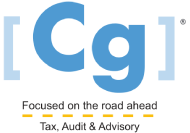 One of the worst things that can happen to a not-for-profit organization is to have its tax-exempt status revoked. Among other consequences, the nonprofit may lose credibility with supporters and the public, and donors will no longer be able to make tax-exempt contributions. Although loss of exempt status isn’t common, certain activities can increase your risk significantly. These include ignoring the IRS’s private benefit and private inurement provisions. Here’s what you need to know to avoid reaping an excess benefit from your organization’s transactions.
One of the worst things that can happen to a not-for-profit organization is to have its tax-exempt status revoked. Among other consequences, the nonprofit may lose credibility with supporters and the public, and donors will no longer be able to make tax-exempt contributions. Although loss of exempt status isn’t common, certain activities can increase your risk significantly. These include ignoring the IRS’s private benefit and private inurement provisions. Here’s what you need to know to avoid reaping an excess benefit from your organization’s transactions.
Understand private inurement
A private benefit is any payment or transfer of assets made, directly or indirectly, by your nonprofit that’s: Beyond reasonable compensation for the services provided or the goods sold to your organization, or For services or products that don’t further your tax-exempt purpose. If any of your nonprofit’s net earnings inure to the benefit of an individual, the IRS won’t view your nonprofit as operating primarily to further its tax-exempt purpose. The private inurement rules extend the private benefit prohibition to your organization’s “insiders.” The term “insider” or “disqualified person” generally refers to any officer, director, individual or organization (as well as their family members and organizations they control) who’s in a position to exert significant influence over your nonprofit’s activities and finances. A violation occurs when a transaction that ultimately benefits the insider is approved.
Make reasonable payments
Of course, the rules don’t prohibit all payments, such as salaries and wages, to an insider. You simply need to make sure that any payment is reasonable relative to the services or goods provided. In other words, the payment must be made with your nonprofit’s tax-exempt purpose in mind. To ensure you can later prove that any transaction was reasonable and made for a valid exempt purpose, formally document all payments made to insiders. Also ensure that board members understand their duty of care. This refers to a board member’s responsibility to act in good faith, in your organization’s best interest, and with such care that proper inquiry, skill and diligence has been exercised in the performance of duties.
Avoid negative consequences
To ensure your nonprofit doesn’t participate in an excess benefit transaction, educate staffers and board members about the types of activities and transactions they must avoid. Stress that individuals involved could face significant excise tax penalties. For more information, please contact the Cg Team. © 2019

